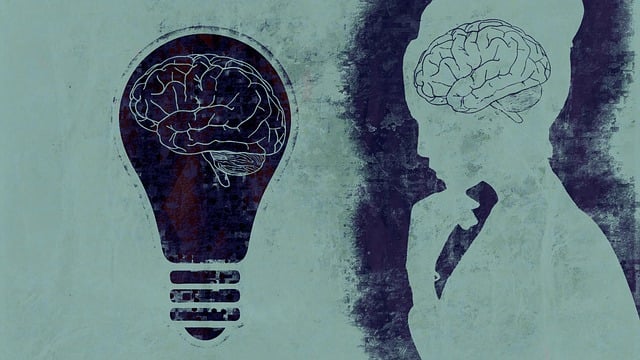Depression, a common mental health struggle, can be prevented and managed through recognizing triggers, adopting healthy lifestyles, and accessing specialized therapy like Lakewood Phobias Therapy. This approach combines lifestyle changes, evidence-based practices (including CBT and DBT), and stigma reduction to empower individuals in overcoming depression and anxiety-related fears. By fostering emotional resilience and support systems, these initiatives promote mental wellness and make seeking help more accessible.
Depression is a prevalent mental health challenge, but prevention is key to fostering well-being. This article guides you through essential strategies to safeguard your mental health, offering insights into understanding depression, identifying signs and triggers, and implementing effective solutions. From lifestyle changes to therapeutic approaches and building resilience, discover practical ways to enhance your mental fortitude. For personalized support, consider Lakewood Phobias Therapy, where experts provide tailored care for a happier, healthier you.
- Understanding Depression: Recognizing Signs and Triggers
- Lifestyle Changes for Improved Mental Well-being
- Effective Therapy Approaches for Depression Management
- Building Resilience: Coping Strategies and Support Systems
Understanding Depression: Recognizing Signs and Triggers

Depression is a complex mental health condition that impacts millions worldwide. Recognizing its signs and understanding potential triggers is a crucial step in prevention. Individuals experiencing depression often exhibit persistent feelings of sadness, loss of interest in activities once enjoyed, changes in appetite and sleep patterns, fatigue, difficulty concentrating, and in some cases, suicidal thoughts or behaviors. These symptoms can significantly impair daily functioning and overall quality of life.
While the exact causes of depression vary from person to person, several factors contribute to its development. Stressful life events like trauma, loss of a loved one, financial difficulties, or major changes in routine can trigger depressive episodes. Additionally, certain medical conditions, genetic predisposition, substance abuse, and even some medications may increase the risk. The Lakewood Phobias Therapy program offers valuable resources for those seeking support. Beyond professional treatment, Mental Wellness Podcast Series Production has gained traction as an engaging way to educate and inspire conversations around mental illness, while Mental Illness Stigma Reduction Efforts play a pivotal role in fostering understanding and empathy within communities. Burnout Prevention Strategies for Healthcare Providers are also essential, given the high-stress nature of their work.
Lifestyle Changes for Improved Mental Well-being

Adopting a healthier lifestyle can significantly contribute to preventing and managing depression. Regular physical activity, for instance, boosts mood by increasing the production of neurotransmitters like serotonin and dopamine, which play a crucial role in regulating emotions and promoting feelings of well-being. A balanced diet, rich in essential nutrients, supports brain health and overall mental resilience. Adequate sleep is another cornerstone; chronic sleep deprivation can exacerbate symptoms of depression. Incorporating stress management techniques, such as mindfulness meditation or yoga, can also help individuals cultivate emotional balance and build coping mechanisms.
At Lakewood Phobias Therapy, we emphasize the importance of these lifestyle changes in conjunction with evidence-based therapeutic interventions. Self-awareness exercises, tailored to individual needs, empower clients to recognize triggers and develop healthier responses. Additionally, promoting cultural sensitivity in mental healthcare practice ensures that diverse populations receive appropriate support, fostering a sense of belonging and reducing the Mental Illness Stigma Reduction Efforts. By combining these strategies, individuals can take proactive steps towards enhancing their mental well-being and maintaining resilience against depressive episodes.
Effective Therapy Approaches for Depression Management

Depression is a serious mental illness that can significantly impact an individual’s daily life and overall well-being. Fortunately, various effective therapy approaches have been proven to manage and prevent depressive episodes. One such approach gaining recognition is Lakewood Phobias Therapy, which focuses on addressing specific fears and phobias often associated with depression. This therapeutic method utilises evidence-based techniques to help individuals confront and overcome their anxiety-inducing triggers, thereby reducing symptoms of depression.
In addition to targeting specific phobias, therapy for depression often involves emotional healing processes that promote self-awareness and coping mechanisms. Therapists employ various techniques such as cognitive behavioural therapy (CBT), dialectical behaviour therapy (DBT), and mindfulness-based interventions to support clients in understanding and regulating their emotions more effectively. These approaches empower individuals to develop resilience against relapse, fostering better emotional regulation skills and reducing the internalized stigma associated with mental illness.
Building Resilience: Coping Strategies and Support Systems

Building resilience is a cornerstone in preventing depression. Coping strategies, such as mindfulness practices and stress management techniques, empower individuals to navigate life’s challenges with greater equanimity. Engaging in regular physical activity, maintaining a balanced diet, and prioritizing quality sleep are key components of emotional well-being that can fortify mental defenses against depressive episodes. Furthermore, cultivating strong support systems through meaningful connections with family, friends, or community groups provides a buffer during difficult times, offering validation, encouragement, and perspective.
Lakewood Phobias Therapy plays a crucial role in fostering resilience by addressing specific fears and anxieties that may contribute to depression. Crisis intervention guidance and emotional regulation techniques taught during therapy empower individuals to recognize early warning signs of mental illness and implement coping mechanisms before symptoms escalate. By reducing the stigma surrounding mental illness, these efforts create a safer space for seeking help and encourage proactive measures to maintain good mental health.
Depression is a serious yet treatable condition, and employing a combination of these strategies can help individuals take control of their mental health. From recognizing signs and triggers to adopting beneficial lifestyle changes, seeking effective therapy, and building resilience through coping mechanisms, there’s a comprehensive approach to managing depression. For those in the Lakewood area, exploring options like phobias therapy can provide tailored support, emphasizing the importance of professional assistance when needed. By implementing these strategies, individuals can enhance their overall well-being and lead happier lives.














